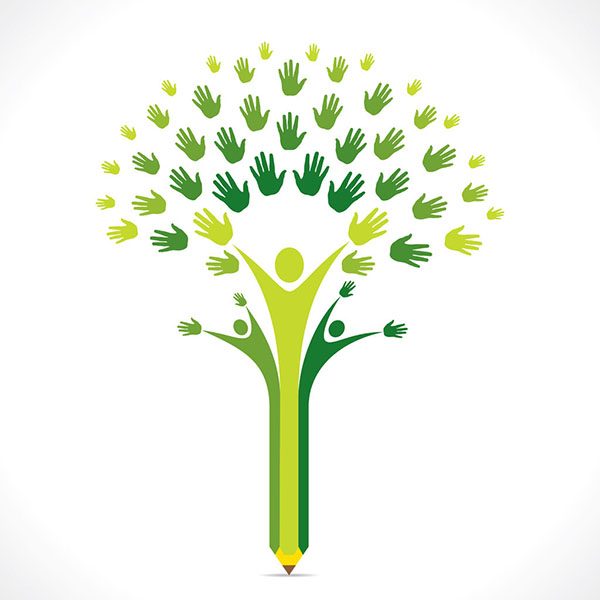2023 DeepThink Tanks
DeepThink Tanks are participatory, action-oriented working sessions focused on critical social and environmental issues. Attendees actively engage with how to address these issues in our teaching, research, community activism, and organizing.
We’ve Got the Power: Accessing Radical Imagination through Community Healing and Storytelling for the BIPOC Community (Session for BIPOC teachers, students, scholars, administrators, and community workers)
Goals:
- Create community among a diverse group of BIPOC community members
- Use storytelling to create healing around issues of BIPOC identity and culture
- Create a communal healing space that addresses difficult emotions in work and life
among BIPOC
Accessing radical imagination requires learning about ourselves, dealing with difficult emotions and accessing our power. How do we access our own power? How do we reclaim difficult emotions in our stories around power? How do we hold space with others and to the benefit of
others in our communities? How does all this work for further community building?
This Deep Think Tank (DTT) aims to create a communal healing space for BIPOC teachers, students, scholars, admin, and community workers who are interested in beginning transformative change in our communities. This is a safe space for BIPOC communities to come together, create connections, and find healing through our stories. This DTT seeks to provide a foundation for future community building through contemplative practices and writing. This DDT will be exploring difficult emotions in work and life experiences with the goal of celebrating joy and radical imagination.
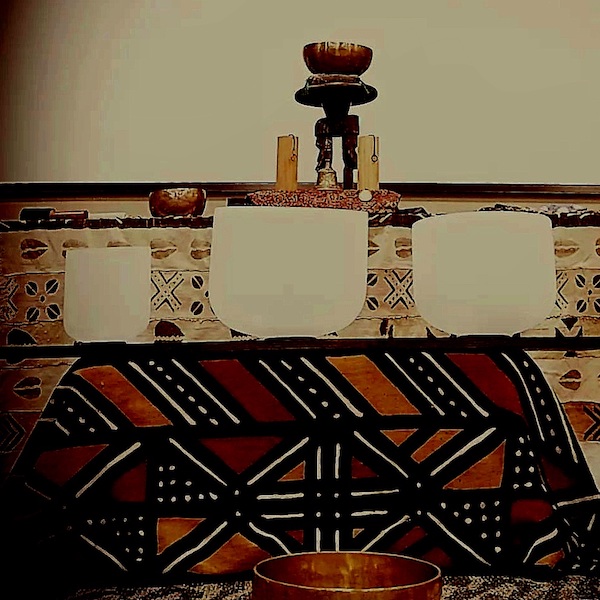
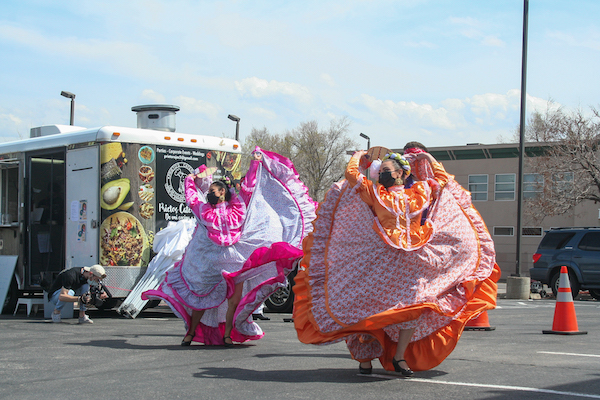
Building Community Health and Wealth: The Valverde Movement Project
The Valverde Movement Project (VMP), created in 2020 by the Valverde Neighborhood Association in collaboration with university researchers, city and regional government, and non-profit organizations, seeks to expand community health and wealth in the hopes of addressing the trends in displacement and climate change in Valverde. Originally conceived to focus on investments in transportation, VMP now deploys its multi-sector, intersectional, engaged approach to a broad array of topics driven by community-identified interests, including the planning and design of built and natural infrastructures, such as sidewalks, trees, and community gathering spaces. Through the use of archival research, story circles, story mapping, and other interdisciplinary and community-based writing and storytelling processes, organizers have been successful in naming and reclaiming a park after a cherished Valverde family, the Ulibarris, participating in a neighborhood planning process, and addressing climate justice initiatives with the City and County of Denver’s Climate Action, Sustainability, and Resiliency Office and The Park People.
This DeepThink Tank session engages participants in conversation and idea generation to think through community-rooted, culturally responsive, asset-based approaches that have the potential to build on collective strengths of numerous individuals and organizations.
Essential Voices: Creating a Story Archive to Resist Invisibilization
(Spanish translation will be provided)
This DeepThink Tank will present one community’s approach to developing a people-centered process for channeling the stories toward decision making processes in resistance to the harms of invisibilization. Agriculture workers have been neglected by institutions in data collection and analysis, advocacy efforts directed toward food systems workers and by government officials. As agricultural workers are a group that has been invisibilized and face concerns of legal safety, the DeepThink Tank facilitators and their organizations (FrontLine Farming, Project Protect Food System Workers, and University of Denver’s Ethnography Lab) developed story collection techniques that allow us to share narratives through audio, video, photo and writing while maintaining workers’ centrality and safety. In early 2021, this community advocated and lobbied for the passage of Colorado Bill SB21-087, which was signed into law in June 2021. This legislative advocacy process further highlighted the need for improving Colorado specific data and engaging workers in policy development and analysis. Quickly after the passage of the bill, the community set out to create www.esencialcolorado.org, a community story archive that documents the fight for rights, respect, and visibility of and by agricultural workers in Colorado, using testimony submitted for the bill as the initial archival stories.
This DeepThink Tank will answer questions including: How was this digital community story archive born? How does data and story play a role in policy advocacy and activism? How might this project be replicated in other communities? What role did community-engaged learning play in this project? How do different community members support the archive?


Coloradans and Our Shared Environment in Times of Challenge and Change: A Multimodal Dialogue Among Artists, Scientists and Communities
The Colorado Art Science Environment (CASE) Fellowship program and exhibition aims to move public audiences beyond debates about climate change to confront, amplify, and make visible the connection all Coloradans have to the state’s natural landscape, and, through connection to place, to one another. It is only through building this basis for connection and relationship that communities can move forward in collectively addressing pressing climate change issues of warming winters, earlier snowmelt, drought, fire, superstorms, and water and air quality on Colorado and beyond.
This deep think tank will engage participants in learning about this multimodal, interdisciplinary, and cross university-community partnership among scientists, artists and communities across urban and rural Colorado. We will engage participants through multimodal activities and conversation at Redline and through a field trip (by bus) to the CASE exhibition at the Colorado State Capitol. Our thinking will be focused on the following three key topics in our own and think tank participants’ artistic production:
- Making visible “invisible” processes
- Designing for respectful and mutually beneficial inclusion of community
- Grappling with structural and political design constraints in working to connect the local with the global
First, we will share how the CASE artist and scientist fellow team from the Colorado Front Range corridor, Darya Warner and Suzanne Anderson and program and curatorial lead Lisa Schwartz addressed these questions in their partnerships with Colorado communities. After each topic, participants will engage in their own exploration.
See italicized portions below for the activities participants will engage in during the session.
Making the invisible visible is a dominant thread of the artistic narratives in the artwork, from beetle kill in Salida, to groundwater in the San Luis Valley and the Front Range to air pollution in Denver.
The Front Range Corridor artist-scientist team will share how they collaborated to make invisible flows of groundwater in wells understandable and know-able through community walks and their art. Warner will discuss how she utilized the shapes, materials and data derived from well sites from Pueblo to Fort Collins to create artwork that engages with processes and complexities of groundwater.
Participants will then be asked to share and discuss what invisible processes they would like to, or already work to make visible in their work, and how they do or might accomplish this work
Warner and Schwartz will discuss how they approach designing for respectful and mutually beneficial inclusion of community. Warner will outline how community members movement was captured in the artwork, and how she extends the movement and shapes made by water and people in the shapes and lighting in her artwork in the CASE exhibition. Schwartz will discuss how the program supported the artist and scientist fellows to connect across perspectives and expertise, and how participants were included in the design process for the exhibition curation.
Warner will then guide participants in outlining their own projects through her process of ideating, planning and executing ways for community members expertise, networks and the living and nonliving elements of a place to be taken up and sustainably embedded into the work.
We will move to the State Capitol to view Warner’s and other teams’ art and discuss how we grappled with structural and political design restrictions. Schwartz will share how the context of the State Capitol provided opportunities and constraints for how she worked with the art-science teams. Importantly, she will discuss strategies that were engaged to depict processes of social and environmental change, and connections of the local with the regional and global, through visual media without text interpretation and without explicitly naming climate change.
Participants will be asked to view the art in the Capitol Rotunda and take notes on key questions related to 1) the artistic intent of the eight artistic works (produced by eight artist-science teams) and 2) the design of the “compiled” images and video viewable that aims to move beyond debates about these issues and depict the lived experience of climate change in communities that highlights the site specific together with common experiences across people and place. We will then engage participants in giving us design insights and ideas for the exhibition as it travels to other locations in Colorado, and for future ways of sharing and engaging across disciplines, modalities and geographies.
CASE fellows are artists from all corners of Colorado and CU Boulder scientists who were connected as part of a program lead by Lisa Schwartz at the CU Boulder Office for Outreach and Engagement in partnership with the Institute of Arctic and Research (INSTAAR) and Boulder County Arts Alliance. The CASE Fellows program connects art and science to the lived experiences of Coloradans grappling with a changing landscape. http://casefellows.buffscreate.net/
Facilitator Bios
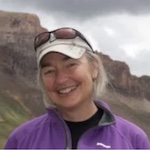 Suzanne Anderson‘s research explores the interaction of physical and chemical processes that shape landscapes and drive geochemical cycles. She has a particular interest in geochemistry in the cryosphere, and has worked on ice dynamics, hydrology and geochemical processes of several Alaskan glaciers. From 2007-2020 Anderson led the Boulder Creek Critical Zone Observatory, a National Science Foundation-funded environmental observatory dedicated to interdisciplinary study of the Critical Zone, the life-sustaining interface at the Earth’s surface where rock meets air and water.
Suzanne Anderson‘s research explores the interaction of physical and chemical processes that shape landscapes and drive geochemical cycles. She has a particular interest in geochemistry in the cryosphere, and has worked on ice dynamics, hydrology and geochemical processes of several Alaskan glaciers. From 2007-2020 Anderson led the Boulder Creek Critical Zone Observatory, a National Science Foundation-funded environmental observatory dedicated to interdisciplinary study of the Critical Zone, the life-sustaining interface at the Earth’s surface where rock meets air and water.
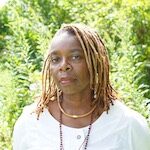
stefani renee (Briggs) (she/her/they) is the owner of Be.Still.Move. (www.bestillmove.com), a program of creative arts-based and embodied contemplative practices. As a contemplative consultant, she has created workshops for numerous organizations and colleges. She is a trained facilitator of 400 Years of Inequality Mindfulness Work and has certification in Mindful Compassion Training and Authentic Leadership, as well as Sound Immersion, Second Degree Reiki, MBSR and is a Stephens Minister. In her TEDx, “Developing Empathy as Practice”, she shares her use of empathy through storytelling and contemplative photography in the college classroom. stefani is the daughter of Juanita and her storytelling father, Stephen Briggs. She currently is working on retelling the story of her recently discovered great great grandfather, Stokes Maddox Judd, utilizing and developing somatic approaches to how she holds the container for enslavement, suffering, joy, fortitude, and contradiction. stefani is also currently working on a visual/storytelling project, “Black Spots,” a travelogue focusing on the reclamation of memories connected to historic, almost forgotten Black communities across the country.
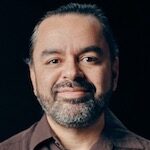 Alejandro Cerón is a researcher interested in understanding the relationship between public health practice and health as a human right, as well as on using collaborative ethnographic methods to promote social justice. He is the author of Epidemiología Neocolonial: Prácticas de Salud Pública y Derecho a la Salud en Guatemala (AVANCSO, 2018). He is Associate Professor of Anthropology at the University of Denver, where he is also a co-leader of the DU Ethnography Lab. He maintains collaborations with organizations in Guatemala and Colorado.
Alejandro Cerón is a researcher interested in understanding the relationship between public health practice and health as a human right, as well as on using collaborative ethnographic methods to promote social justice. He is the author of Epidemiología Neocolonial: Prácticas de Salud Pública y Derecho a la Salud en Guatemala (AVANCSO, 2018). He is Associate Professor of Anthropology at the University of Denver, where he is also a co-leader of the DU Ethnography Lab. He maintains collaborations with organizations in Guatemala and Colorado.
 Cara DiEnno, PhD is the Executive Director in the University of Denver (DU)’s Center for Community Engagement to advance Scholarship and Learning (CCESL). In 2017, Cara founded the Campus-City Partnerships for Public Engagement team. She is a community-engaged scholar who has led the design and implementation of various public participation projects in collaboration with non-profits and city governments. She has a background in social aspects of natural resources with a specific emphasis in environmental communication focused on urban residents’ interactions with city greenspaces. Through her role at CCESL, she works alongside faculty and administrators to institutionalize high-impact, community-engaged work to advance discovery and learning. She holds a BS from Western Michigan University and an MS and PhD in Human Dimensions of Natural Resources from Colorado State University.
Cara DiEnno, PhD is the Executive Director in the University of Denver (DU)’s Center for Community Engagement to advance Scholarship and Learning (CCESL). In 2017, Cara founded the Campus-City Partnerships for Public Engagement team. She is a community-engaged scholar who has led the design and implementation of various public participation projects in collaboration with non-profits and city governments. She has a background in social aspects of natural resources with a specific emphasis in environmental communication focused on urban residents’ interactions with city greenspaces. Through her role at CCESL, she works alongside faculty and administrators to institutionalize high-impact, community-engaged work to advance discovery and learning. She holds a BS from Western Michigan University and an MS and PhD in Human Dimensions of Natural Resources from Colorado State University.
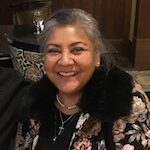 Evon Lopez is a lifelong resident of Denver, Colorado, and comes from a family of community activists led by her parents, Fred and Elaine Lucille Ulibarri. She served the City and County of Denver as a human resource professional and systems analyst for more than 25 years. During her remarkable career, she was recognized by colleagues for her commitment, compassion, and care for others. Through her collaborative work with The Park People, she is working towards green justice for her community, the Valverde neighborhood. She also works closely with her University of Denver partners in the Valverde Movement Project and planning students and faculty at the University of Colorado Denver. She is inspired by the climate change initiatives from the City and County of Denver, working with other community activists, and the power of bringing people together to create sustainable and vibrant living environments that support health and wealth in underserved communities. She is in her 3rd year of the BS in Human Resources Management Colorado State University Global.
Evon Lopez is a lifelong resident of Denver, Colorado, and comes from a family of community activists led by her parents, Fred and Elaine Lucille Ulibarri. She served the City and County of Denver as a human resource professional and systems analyst for more than 25 years. During her remarkable career, she was recognized by colleagues for her commitment, compassion, and care for others. Through her collaborative work with The Park People, she is working towards green justice for her community, the Valverde neighborhood. She also works closely with her University of Denver partners in the Valverde Movement Project and planning students and faculty at the University of Colorado Denver. She is inspired by the climate change initiatives from the City and County of Denver, working with other community activists, and the power of bringing people together to create sustainable and vibrant living environments that support health and wealth in underserved communities. She is in her 3rd year of the BS in Human Resources Management Colorado State University Global.
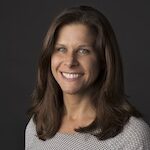 Carrie Makarewicz, PhD is an associate professor and chair of the Department of Urban and Regional Planning at University of Colorado Denver. She does applied research on the implications for individuals and families from the interactions among public investments, private development, planning processes, and public policies with a focus on transportation infrastructures, affordable housing, public schools, community development, and disaster recovery. Prior to academia, she worked as a city planner, consultant, and policy analyst. She earned her BBA from the University of Michigan, Ann Arbor, a MUPP from the University of Illinois-Chicago, and a Ph.D. in City and Regional Planning from the University of California, Berkeley.
Carrie Makarewicz, PhD is an associate professor and chair of the Department of Urban and Regional Planning at University of Colorado Denver. She does applied research on the implications for individuals and families from the interactions among public investments, private development, planning processes, and public policies with a focus on transportation infrastructures, affordable housing, public schools, community development, and disaster recovery. Prior to academia, she worked as a city planner, consultant, and policy analyst. She earned her BBA from the University of Michigan, Ann Arbor, a MUPP from the University of Illinois-Chicago, and a Ph.D. in City and Regional Planning from the University of California, Berkeley.
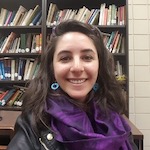 Kassandra Neiss is FrontLine Farming’s Data Activist and Systems Manager and the Data Lead for Project Protect Food System Workers. She holds an MA in cultural anthropology from the University of Denver and a BA from Hampshire College in US ethnic studies and oral history. She also owns her own research consulting company and has taught anthropology at Community College of Aurora, Colorado. Kassandra pursues applied research and community organizing at the intersection of multiculturalism, social and racial justice, health and food equity, and community-driven data ethics. Kasey has decades of experience in service of increased food access and racial justice initiatives, and has worked in agricultural spaces for 5 years.
Kassandra Neiss is FrontLine Farming’s Data Activist and Systems Manager and the Data Lead for Project Protect Food System Workers. She holds an MA in cultural anthropology from the University of Denver and a BA from Hampshire College in US ethnic studies and oral history. She also owns her own research consulting company and has taught anthropology at Community College of Aurora, Colorado. Kassandra pursues applied research and community organizing at the intersection of multiculturalism, social and racial justice, health and food equity, and community-driven data ethics. Kasey has decades of experience in service of increased food access and racial justice initiatives, and has worked in agricultural spaces for 5 years.
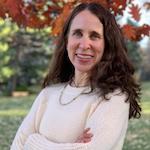 Lisa Schwartz, PhD is community outreach program manager at the CU Boulder Office for Outreach and Engagement. Schwartz has more than 20 years of experience as a community-engaged scholar, educational researcher, social scientist, educator and designer of learning environments. Through work in STEM education efforts in Colorado, Arizona and Ecuador, Schwartz has worked with higher education institutions, nonprofits, K-12 schools and non-dominant communities to engage the arts, sciences and information and communications technologies to explore connections between people and place, and biological and cultural diversity. Please contact Lisa with any questions about the Art + Science + Action Collaborations and the Colorado Art Science Environment Fellows.
Lisa Schwartz, PhD is community outreach program manager at the CU Boulder Office for Outreach and Engagement. Schwartz has more than 20 years of experience as a community-engaged scholar, educational researcher, social scientist, educator and designer of learning environments. Through work in STEM education efforts in Colorado, Arizona and Ecuador, Schwartz has worked with higher education institutions, nonprofits, K-12 schools and non-dominant communities to engage the arts, sciences and information and communications technologies to explore connections between people and place, and biological and cultural diversity. Please contact Lisa with any questions about the Art + Science + Action Collaborations and the Colorado Art Science Environment Fellows.
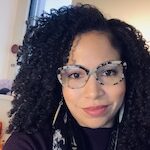 Monika L Son, Ph.D, is a consultant, certified Embodied Leadership Coach and trauma informed facilitator. As a trained psychologist and expert facilitator with a twenty-year career in teaching on issues of access, opportunity and justice, she is skilled at supporting and building containers that examine issues around identity, oppression, power and privilege. Her work centers on cultivating healing and connection with, and for others who are committed to transformative change through love and justice. Monika is a student in the Buddhist Soto Zen lineage and holds a practice of meditation, yoga and somatic practice for more than a decade. She is daughter of Dominican immigrants, a parent of two mixed raced boys, and enjoys listening, telling and writing stories about beginnings and endings.
Monika L Son, Ph.D, is a consultant, certified Embodied Leadership Coach and trauma informed facilitator. As a trained psychologist and expert facilitator with a twenty-year career in teaching on issues of access, opportunity and justice, she is skilled at supporting and building containers that examine issues around identity, oppression, power and privilege. Her work centers on cultivating healing and connection with, and for others who are committed to transformative change through love and justice. Monika is a student in the Buddhist Soto Zen lineage and holds a practice of meditation, yoga and somatic practice for more than a decade. She is daughter of Dominican immigrants, a parent of two mixed raced boys, and enjoys listening, telling and writing stories about beginnings and endings.
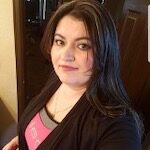 Brenda Tanori
Brenda Tanori
I have been working as a Project Protect Promotra on the Western Slope since the beginning of the program in 2020. In my role, I help agricultural workers and others in my community with translation, filling out documents, giving them rides to their appointments, providing food and clothing, and connecting them to the other legal, social, financial and health services they need. I was born in Delta, Colorado and continue to help this same community as a leader in my community. My family has always been in agriculture. When I was 14 I started working in the fields as my first job. With these personal connections to agriculture, I know the realities that agricultural workers have to face every day and know how much this work is needed.
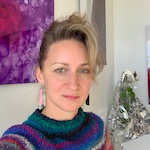 Darya Warner works at the intersection of art and science by bridging the creative process and growth/connections with human and non-human actors through the prism of Climate Change. By addressing site-specific history, ecology, and local systems of communication Warner aims to mine a new form of hybrid space for “intermatter” interaction with an emphasis on the interconnectivity of intelligence across species. Their research explores the Biophilia Hypothesis, also known as “the love of all living things,” as a crucial factor in reconnecting humans and nature via interactive installations, visual displays, photography, sound, time-based media, and bioart in the new form of hybrid matter based on care. They address issues of environmental impact among artists and connect creative processes to earth-conscious practices. Warner is an educator, and they are implementing sustainable art practices methodology as a part of the educational curriculum. They graduated from the School of Visual Arts (BFA) and got their MFA from University at Buffalo. They have exhibited nationally and internationally, including in NYC, Denver, Albuquerque, LA, Miami, India, and Germany, and received multiple grants to support their projects. Warner teaches photography and art+science collaborative practices at the United States Airforce Academy, Colorado.
Darya Warner works at the intersection of art and science by bridging the creative process and growth/connections with human and non-human actors through the prism of Climate Change. By addressing site-specific history, ecology, and local systems of communication Warner aims to mine a new form of hybrid space for “intermatter” interaction with an emphasis on the interconnectivity of intelligence across species. Their research explores the Biophilia Hypothesis, also known as “the love of all living things,” as a crucial factor in reconnecting humans and nature via interactive installations, visual displays, photography, sound, time-based media, and bioart in the new form of hybrid matter based on care. They address issues of environmental impact among artists and connect creative processes to earth-conscious practices. Warner is an educator, and they are implementing sustainable art practices methodology as a part of the educational curriculum. They graduated from the School of Visual Arts (BFA) and got their MFA from University at Buffalo. They have exhibited nationally and internationally, including in NYC, Denver, Albuquerque, LA, Miami, India, and Germany, and received multiple grants to support their projects. Warner teaches photography and art+science collaborative practices at the United States Airforce Academy, Colorado.
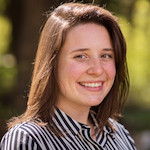 Jenna Wyatt is a Master’s Student at the University of Denver, obtaining a degree in Environmental Management and Policy with a concentration in sustainability and energy. She holds a BS in Human Dimensions of Natural Resources from Colorado State University. She has spent most of her career traveling around Colorado holding various roles supporting local governments, nonprofits, and grassroots efforts for sustainable communities. She’s worked for the Metro Denver Nature Alliance, the City of Aspen, and the University of Denver Bike Shop. Jenna is practicing community-engaged scholarship through her work with Valverde Movement Project. In service of the Valverde community, she is developing a pilot storytelling tour in hopes of increasing a sense of community awareness and motivation to address environmental impacts caused by exclusionary zoning practices.
Jenna Wyatt is a Master’s Student at the University of Denver, obtaining a degree in Environmental Management and Policy with a concentration in sustainability and energy. She holds a BS in Human Dimensions of Natural Resources from Colorado State University. She has spent most of her career traveling around Colorado holding various roles supporting local governments, nonprofits, and grassroots efforts for sustainable communities. She’s worked for the Metro Denver Nature Alliance, the City of Aspen, and the University of Denver Bike Shop. Jenna is practicing community-engaged scholarship through her work with Valverde Movement Project. In service of the Valverde community, she is developing a pilot storytelling tour in hopes of increasing a sense of community awareness and motivation to address environmental impacts caused by exclusionary zoning practices.
 Ada Vilageliu-Díaz is an Assistant Professor at the University of the District of Columbia. She teaches writing and literature courses with a focus on community and diversity. Her research focuses on rhetoric and community-based teaching. Her poetry has been published in Beltway Poetry Quarterly and Knocking on the Door of the White House: Latina and Latino Poets in Washington, D.C. Her creative writing is based on legends and myths about the indigenous Guanches from the Canary Islands and on a fragmented African Latina identity. She is currently writing her memoir in Spanish about the process of reconstructing narratives about her Guanche roots. She is also a documentary filmmaker. Her directorial debut was in 2014 with the documentary Near the River about environmental women leaders in the DC area. This film was in the official selection of film festivals in Colombia, Brazil, India, Spain, and the US. She is the host and creator of two bilingual community-based projects in Washington, DC: Mi Libro, Mi Espejo (My Book, My Mirror) Story Time and the Creative Community Writing Salon. Her website is adavilageliudiaz.com.
Ada Vilageliu-Díaz is an Assistant Professor at the University of the District of Columbia. She teaches writing and literature courses with a focus on community and diversity. Her research focuses on rhetoric and community-based teaching. Her poetry has been published in Beltway Poetry Quarterly and Knocking on the Door of the White House: Latina and Latino Poets in Washington, D.C. Her creative writing is based on legends and myths about the indigenous Guanches from the Canary Islands and on a fragmented African Latina identity. She is currently writing her memoir in Spanish about the process of reconstructing narratives about her Guanche roots. She is also a documentary filmmaker. Her directorial debut was in 2014 with the documentary Near the River about environmental women leaders in the DC area. This film was in the official selection of film festivals in Colombia, Brazil, India, Spain, and the US. She is the host and creator of two bilingual community-based projects in Washington, DC: Mi Libro, Mi Espejo (My Book, My Mirror) Story Time and the Creative Community Writing Salon. Her website is adavilageliudiaz.com.
